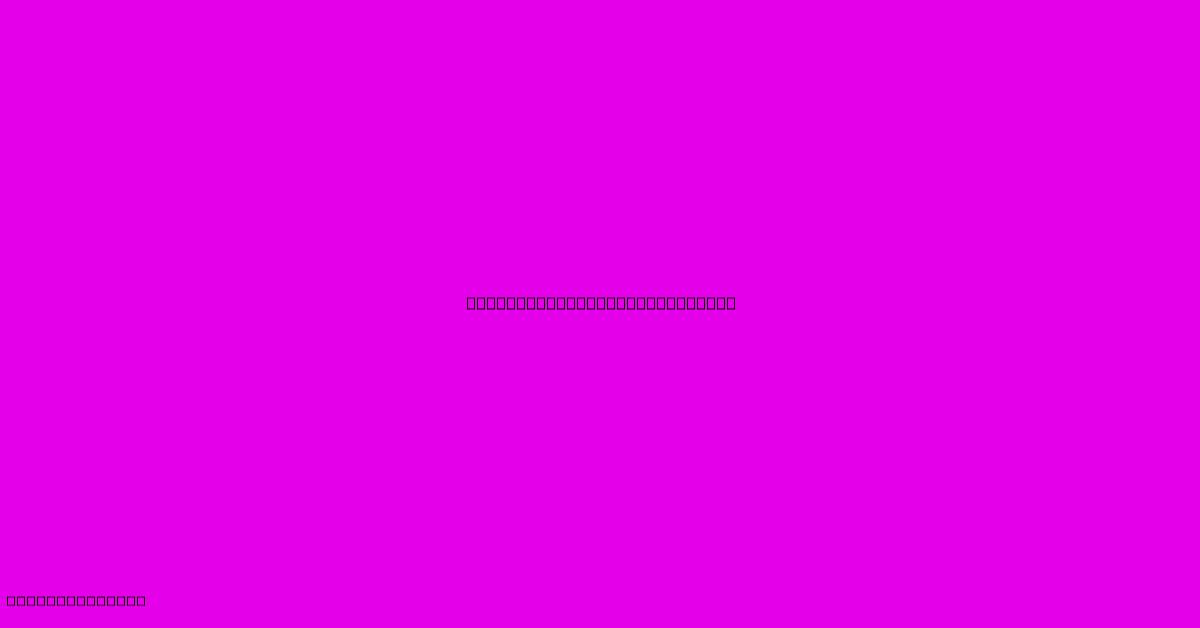Man Utd Verloor Teen Wolves

Discover more detailed and exciting information on our website. Click the link below to start your adventure: Visit Best Website mr.cleine.com. Don't miss out!
Table of Contents
Man Utd's Loss to Wolves: A Disappointing Display
Manchester United's 1-0 defeat to Wolves at Old Trafford was a disappointing start to the new year and a stark reminder of the challenges Erik ten Hag still faces. The loss, sealed by a late goal, highlighted several areas of concern for the Red Devils. This article delves deeper into the match, analyzing the key moments, tactical decisions, and overall performance that led to the defeat.
A Frustrating First Half
The first half saw Manchester United dominate possession, but they struggled to create clear-cut chances. Wolves, employing a compact defensive strategy, frustrated United's attacking players, effectively stifling their creativity. While United enjoyed periods of pressure, their final ball consistently lacked precision, leading to numerous half-chances that were easily dealt with by the Wolves defense. The midfield battle was also a key factor, with Wolves winning many second balls and disrupting United's rhythm. The lack of a clinical edge in the final third proved costly, leaving the scoreline goalless at the break.
The Decisive Second Half & Wolves' Winning Goal
The second half followed a similar pattern, with United dominating possession but failing to translate that dominance into goals. Wolves continued their defensive solidity, absorbing pressure effectively. The turning point arrived late in the game, a moment of individual brilliance from a Wolves player leading to a goal that proved to be the winner. United pushed for an equalizer in the dying minutes, but their efforts were ultimately fruitless. The late goal was a cruel blow, but it also reflected United's overall lack of cutting edge in the attacking third.
Tactical Analysis and Player Performances
Ten Hag's tactical approach appeared to be aimed at controlling possession and creating overloads in wide areas. While the strategy yielded periods of sustained possession, the effectiveness in the final third was significantly lacking. Individual player performances were mixed, with some players showcasing their abilities while others struggled to make a significant impact on the game. The lack of cohesion between the midfield and attack was evident, preventing the seamless flow of attacking play. The overall performance lacked the dynamism and clinical edge that has characterized some of United's better performances this season.
Looking Ahead: Areas for Improvement
The defeat against Wolves serves as a valuable lesson for Manchester United. It highlights the need for improvement in several key areas. Improving the team's clinical finishing is paramount, as numerous opportunities were squandered. The midfield needs to be more effective in breaking down compact defenses and creating more chances for the forwards. Finally, the team needs to improve its ability to create opportunities from set pieces, as they failed to exploit this aspect of the game effectively.
Conclusion: A Wake-Up Call for Manchester United
The loss to Wolves is undoubtedly a setback for Manchester United. While it's crucial not to overreact to one result, the performance raises concerns about the team's consistency and ability to break down stubborn defenses. Ten Hag will need to address these issues quickly if United are to maintain their momentum and achieve their season objectives. The game serves as a timely reminder of the hard work and improvement still required to compete at the highest level. The coming weeks will be crucial in determining how United responds to this setback.

Thank you for visiting our website wich cover about Man Utd Verloor Teen Wolves. We hope the information provided has been useful to you. Feel free to contact us if you have any questions or need further assistance. See you next time and dont miss to bookmark.
Featured Posts
-
Phantom Technology Solutions
Dec 27, 2024
-
Nba Dominates Nfl On Christmas
Dec 27, 2024
-
Liverpool Vs Leicester City Transmision Tv
Dec 27, 2024
-
Applied Computer Technologies
Dec 27, 2024
-
Everton Segura City Haaland Falha
Dec 27, 2024
